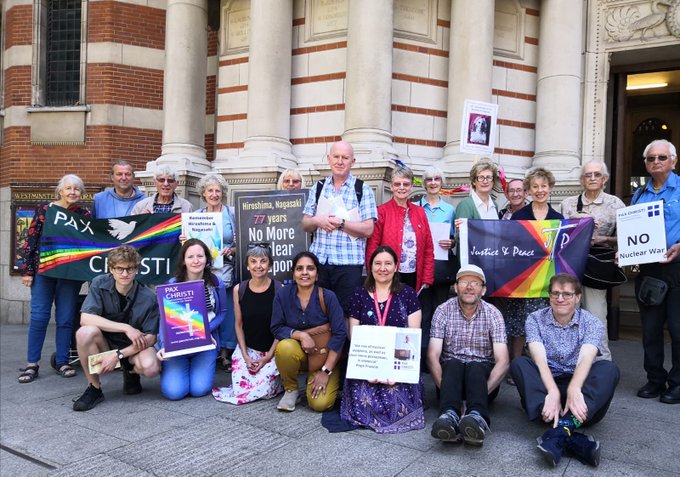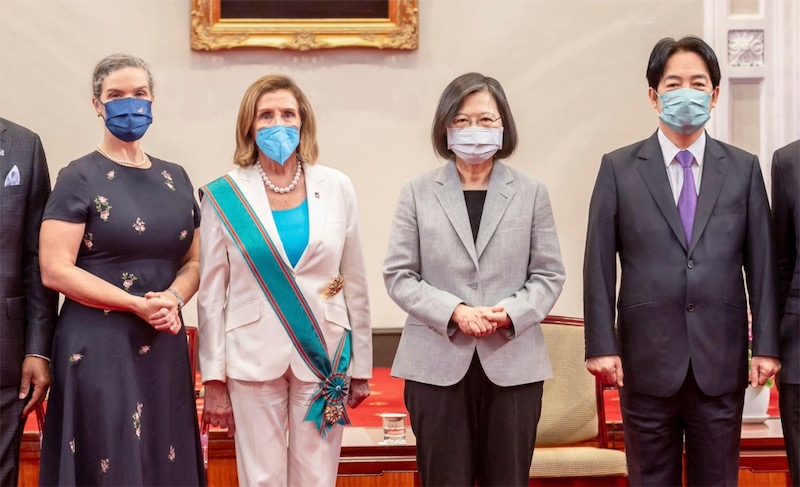When Nancy Pelosi on the evening of Tuesday 2 August stepped off a Boeing C-40C jet – a military version of the Boeing 737 jetliner – at Taipei’s Taoyuan International Airport to be greeted by Taiwan's president, Tsai Ing-wen, she did not only throw US-China relations into disarray. She impaled the Vatican on the horns of a dilemma that will test the skills of its most able diplomats.
China had made repeated threats of ferocious retaliation if the visit took place. The world held its breath, and Beijing appeared to blink - there were no immediate reprisals. But several days of military exercises around Taiwan soon silenced any sighs of relief.
Highlighting the alarm among smaller countries in the region, the Association of Southeast Asian Nations (Asean) foreign ministers expressed concern in a rare public statement about the “international and regional volatility” the visit had set in motion. “We all have skin in this game and . . . want America and China to get along,” Singapore’s foreign minister Vivian Balakrishnan said. “This is a dangerous, dangerous moment for the whole world.” Meanwhile Jing Quan, the third-ranking Chinese diplomat in Washington, warned that “Taiwan is one of the very few issues that might take China and the United States to conflict or even war”.
No sooner had the Speaker of the House of Representatives and third in line to the US presidency departed after her brief visit, than China dispatched 27 warplanes into Taiwan’s air defence identification zone.
China regards Taiwan with its 23.9 million people as a wayward province that one way or another and sooner rather than later it will retake. There is no ambivalence about this belief: its neighbour is Chinese territory to be seized one day, by force if necessary. Taiwan, however, after its rapid commercial and industrial growth since the 1990s, has started to focus on independent recognition.
For decades a US policy of “strategic ambiguity” – accepting Beijing’s “one-China” policy, but not showing its cards on what it would do if China invaded Taiwan – kept the peace and allowed for ever burgeoning US-China trade relations. But if the US Administration thinks mutual economic interests will allow this crisis to blow over, it has misread China.
Meanwhile the Holy See has a powerful card too. Only 13 of the 193 UN member states plus the Holy See maintain formal diplomatic relations with Taiwan. And the Holy See is the only European entity to do so. But the ongoing silence from Rome indicates that only those in the deepest recesses of the Secretariat of State know how this card might be played.
In Ukraine the Vatican has managed to maintain a semblance of diplomatic neutrality that may yet allow it to have a role in a negotiated peace settlement. Yet as regards China, Taiwan and the US, its already established positions mean it will be pulled in several directions at once.
Last month the Pope said the Holy See's Provisional Agreement with the People's Republic of China, signed in 2018 and due for renewal in October, “is going well” and that he hopes the deal, centred on the appointment of bishops, can be renewed.
Earlier this year the Vatican removed its unofficial representatives in Taiwan and has so far not appointed replacements. The lack of urgency may be connected to the fact that there are 12 million Catholics in China, and at most 300,000 in Taiwan. Despite this the Church enjoys excellent relations with Taiwan – for instance, on 18 July last year Taiwanese President Tsai Ing-Wen attended the installation ceremony of Archbishop Thomas Chung An-Zu of Taipei, where she hailed the positive impact of the Catholic Church on the country.
Meanwhile on 29 June Francis met Pelosi before celebrating mass in St Peter’s basilica, where she received communion despite her position in support of abortion “rights”.
Secretary of State Cardinal Pietro Parolin and his top advisers are no doubt wrestling desperately with what is in fact a three-headed trilemma – Washington, Beijing and Taipei, all looking different ways, and two of them with a vast nuclear arsenal. So they are not-insignificant players in a game that could end the world. At the time of The Tablet’s going to press, there was still silence from the the Secretariat.



 Loading ...
Loading ...